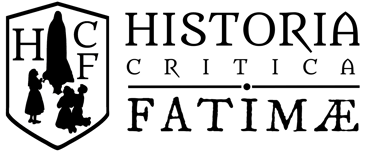Why a Critical Corpus Matters
1. Problems with Official Narratives
The study of the Apparitions of Fátima (1917) has until now been marked by an excessive dependence on narratives elaborated within devotional or apologetic contexts.
The literature available to both the general public and many specialists still relies heavily on works published between the mid-twentieth century and the 1980s, such as those of Giovanni De Marchi and the trilogy by Fr. Michel de la Sainte Trinité.
While valuable in their time, these works suffer from notable limitations: absence of critical apparatus, partial use of available sources, and dependence on oral traditions not always verifiable.
Likewise, the monumental work of Fr. Joaquín María Alonso, once the official archivist of Fátima, reflects a strongly apologetic orientation and does not incorporate the contributions of subsequent historians who remain practically unknown internationally, such as Sebastião Martins dos Reis and António Maria Martins.
The result is that much of current knowledge about Fátima falls short of the demands of critical historical analysis, remaining ungrounded in a systematic framework and engaging with less than forty percent of the available documentation, often in a predominantly devotional tone.
An additional difficulty lies in the lack of access to critical sources: numerous fundamental interrogations, minutes, and testimonies — including original documents related to Sister Lúcia — have been lost, forgotten, or published in editions now impossible to find and lacking translation into major academic languages.
This deficiency generates dependence on partial, if not simplified, versions of the events of 1917 and of the lives of their protagonists.
2. Dr. Álvaro Albornoz’s Specialized Fátima Library — Bibliotheca Fatimologica: A Monument of Erudition in Honor and Devotion to Fátima
Founded by Dr. Álvaro Albornoz Castro, the Bibliotheca Fatimologica is one of the most comprehensive private research libraries on Fátima worldwide, comprising works of unique scholarly value and assembling critical editions, rare publications, and essential sources in multiple languages that form the indispensable foundation of the Corpus.
In this context, a project that gathers, organizes, and subjects all bibliographical material related to Fátima to scientific (i.e., methodical and critical) scrutiny becomes essential.
The Corpus Historicum Fatimae Criticum seeks precisely to:
Recover and critically edit primary sources — interrogations, minutes, correspondence, and contemporary press.
Apply the historical-critical method in its classical sense: internal and external criticism of documents, historical and biographical contextualization, and corroboration between sources.
Guarantee institutional independence, remaining outside the dependence of the Sanctuary of Fátima to ensure objectivity in analysis.
Offer systematic and verifiable access to materials, presented with critical apparatus and exhaustive bibliography.
This critical library will, for the first time, establish a solid foundation for the study of Fátima, open to international academic scrutiny and reader verification. The Bibliotheca Fatimologica is the foundational cornerstone of the Corpus Historicum Fatimae Criticum.
3. Cultural, Religious, and Historical Impact
The Fátima phenomenon has had an extraordinary influence on the life of the Church and contemporary culture.
From 1917 to the present day, its reception has shaped popular devotion, pastoral orientations, theological debates, and even interpretations of twentieth-century political and geopolitical processes.
However, the impact of Fátima cannot be fully understood without a critical historical reconstruction that clarifies the facts, testimonies, and evolution of the message across more than a century.
A Critical Corpus therefore provides a triple benefit:
· Religious: offering the Church and the faithful a more solid and documented knowledge, complementing the devotional dimension with the historical one.
· Cultural: allowing the integration of Fátima into studies of contemporary history, history of the Church in the twentieth century, Catholic theological historiography, and general historiography of European culture.
· Academic: creating a base of sources and analyses that engages with the methods of classical historical science, allowing for interdisciplinary research.
In summary, the Corpus Historicum Fatimae Criticum is a scientific necessity, aimed at overcoming the limitations of devotional historiography and offering a critical, independent, and documented work that serves both the Church and the international academic community.
info@historiacritica.com
+ 40 784 812 387
Copyright © 2025. Historia Critica Fatimae - All rights reserved.


CONTACT
SHARE
FOLLOW
